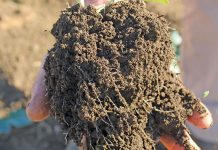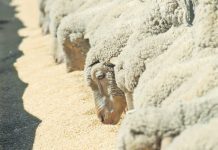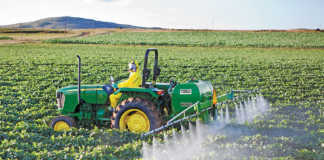The protein in milk is being mixedwith ordinary clay to develop an ultra-light, biodegradable styrofoam substitute that researchers say could be a substitute for traditional foamed plastics.An international research team says the new substance could be used in furniture cushions, insulation, packaging and other products.
In the Biomacromolecules journal, researchers from Chulalongkorn University in Bangkok, Thailand, and Case Western Reserve University in Cleveland, US, report that 80% of cow milk protein is casein, which is already used to make adhesives and paper coatings. But casein isn’t very strong, and water can wash it away.
To beef it up and boost its water-resistance, scientists blended in a small amount of clay and a reactive compound called glyceraldehyde, which links casein’s protein molecules together.The scientists then freeze-dried the mixture, removing the water to produce a spongy aerogel, one of a family of substances so light and airy that they’ve been termed “solid smoke”.
To make the gossamer foam stronger, they cured it in an oven, and then tested its sturdiness. They concluded that it is strong enough for commercial use and is biodegradable, with almost a third of the material breaking down within 30 days.
The scientists reported that, “because of the highly porous internal structure of the clay aerogel and low-density polymer/clay aerogel composites, it exhibited superior thermal insulation characteristics, similar to those of conventional insulating foams.”
Team leader David Schiraldi of Case Western Reserve University says the product is environmentally friendly, as is its production – the only effluent is water vapour. The research was inspired by the impact of persistent plastic waste on the environment as well as by the limited availability of landfill sites and petroleum resources.













